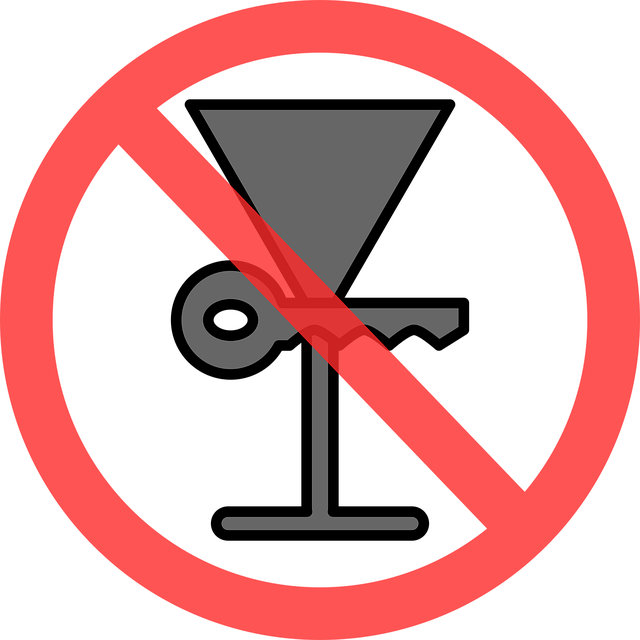Community service programs focus on educating individuals about drug interactions and DUI laws to prevent unintentional medication-alcohol interactions that lead to impaired judgment and coordination. By raising awareness, these initiatives empower people to make safer choices, reduce future incidents involving prescription medications, promote accountability, and foster personal growth among offenders. Restorative justice through community service benefits both communities and offenders, offering transformative experiences, harm reduction efforts, empathy development, and positive alternatives to recidivism. Specialized programs for DUI offenders emphasize drug interaction education, prevention, and participation in informational sessions, support groups, and road safety campaigns. Engaging in structured community service with understanding of Drug Interaction and DUI Law allows individuals to redeem past mistakes while contributing to public safety and societal healing.
Community service as a form of atonement is transforming lives and communities, especially for those facing drug-related charges. Understanding the intricate relationship between drug interactions and DUI laws is crucial in designing effective restorative justice initiatives. This article explores various facets of community service as amends, from its impact on offenders to specific programs tailored for DUI cases. By delving into legal considerations and highlighting success stories, we uncover how these initiatives not only fulfill legal requirements but also foster personal growth and societal healing.
- Understanding Drug Interactions and DUI Laws
- The Impact of Community Service on Offenders
- Restorative Justice: Making Amends Through Service
- Specific Community Service Programs for DUI Offenders
- Navigating Legal Requirements for Community Service
- Success Stories: Transforming Lives Through Service
Understanding Drug Interactions and DUI Laws

Understanding drug interactions and DUI laws is an essential aspect of community service focused on making amends. Many individuals facing charges related to driving under the influence (DUI) may have inadvertently consumed medications that interact with alcohol, leading to impaired judgment and coordination. Community service initiatives can educate people about these potential interactions, empowering them to make safer choices. By learning about Drug Interactions and DUI Law, volunteers or community members can help spread awareness and reduce future incidents.
This knowledge is crucial in preventing accidental DUI-related incidents involving prescription medications. Volunteers engaged in such programs can play a vital role in guiding individuals towards responsible medication management, ensuring they are aware of the effects of mixing certain drugs with alcohol. Educating the community about these legal implications and health risks can foster a culture of accountability and personal responsibility.
The Impact of Community Service on Offenders

Community service, as a form of restorative justice, offers significant benefits for both communities and offenders, especially those facing drug-related charges or convicted of DUI (Driving Under the Influence). For offenders, it provides an opportunity to give back and make amends while learning valuable lessons. Engaging in community service projects can help individuals take responsibility for their actions and understand the impact of their behavior on others.
By participating in activities such as cleaning local parks, assisting at soup kitchens, or tutoring underprivileged children, offenders develop a sense of empathy and connection with their communities. This experience can be transformative, encouraging personal growth and a shift away from behaviors associated with drug interaction and DUI law violations. Moreover, community service can help rebuild broken relationships, foster social integration, and provide a positive alternative to recidivism, ultimately contributing to safer and stronger neighborhoods.
Restorative Justice: Making Amends Through Service

Restorative Justice emphasizes repair and reconciliation, which can be a powerful tool for those seeking to make amends for their actions, especially in cases involving drug interactions and DUI law. Instead of focusing solely on punishment, this approach encourages individuals to take responsibility for their behavior and actively contribute to healing within their communities.
Through community service, offenders can directly address the harm caused, whether that’s assisting at local rehabilitation centers, participating in environmental clean-up initiatives, or supporting programs aimed at drug prevention. This not only benefits the community but also offers a transformative experience for the individual, fostering empathy and personal growth while aiming to break the cycle of addiction and criminal behavior.
Specific Community Service Programs for DUI Offenders

For DUI offenders looking to make amends, specific community service programs focus on education and prevention related to drug interaction and DUI law. These programs often involve direct engagement with communities most affected by impaired driving, such as hosting informational sessions in schools, local bars, or community centers. Through these initiatives, participants gain a deeper understanding of the consequences of drunk driving and the complexities of Drug Interaction and DUI Law.
Additionally, offenders may be required to volunteer at substance abuse support groups or participate in road safety campaigns. These hands-on experiences not only contribute to public safety but also foster personal growth by encouraging accountability and a commitment to positive behavior change. Such structured community service programs play a vital role in helping individuals overcome their past mistakes and become active, responsible members of society.
Navigating Legal Requirements for Community Service

When engaging in community service as part of an amends process, it’s crucial to understand and navigate legal requirements, especially regarding Drug Interaction and DUI Law. In many jurisdictions, individuals with a history of substance-related offenses are often required to complete community service hours as part of their sentence or probation. This not only offers a chance for redemption but also allows them to give back to communities affected by similar issues.
However, navigating these legal requirements can be complex. It’s essential to cooperate fully with supervising authorities and ensure all tasks align with the prescribed guidelines. Understanding Drug Interaction and DUI laws is critical; community service roles involving substance education, support groups, or recovery programs can help offset past mistakes while adhering to legal mandates.
Success Stories: Transforming Lives Through Service

Community service, especially when focused on making amends, has the power to transform lives. Take the story of John, a young man who, after a drug interaction led to a DUI charge, found redemption through volunteer work at a local soup kitchen. This experience not only helped him give back to the community but also rekindled his passion for helping others. Today, John is a vocal advocate for addiction recovery and uses his platform to educate youth about the dangers of substance abuse, all while continuing his community service efforts.
Similarly, Sarah, a former offender, found solace and a new purpose through community service projects aimed at at-risk youth. She mentors young people, sharing her story of overcoming adversity, and helps them avoid the pitfalls she once fell into. Her dedication has inspired many, showing that with hard work and support, lives can be drastically turned around. These success stories underscore the profound impact community service can have on individuals, fostering not only personal growth but also positive changes in their communities.
Community service offers a powerful avenue for redemption and rehabilitation, especially for those who’ve faced charges related to drug interactions and DUI laws. By participating in restorative justice programs, offenders can make amends while contributing to their communities. Navigating the legal requirements and finding suitable programs, like those specifically designed for DUI offenders, can lead to successful transformations. These success stories highlight the potential of community service to change lives, fostering not only personal growth but also stronger, more resilient communities.






